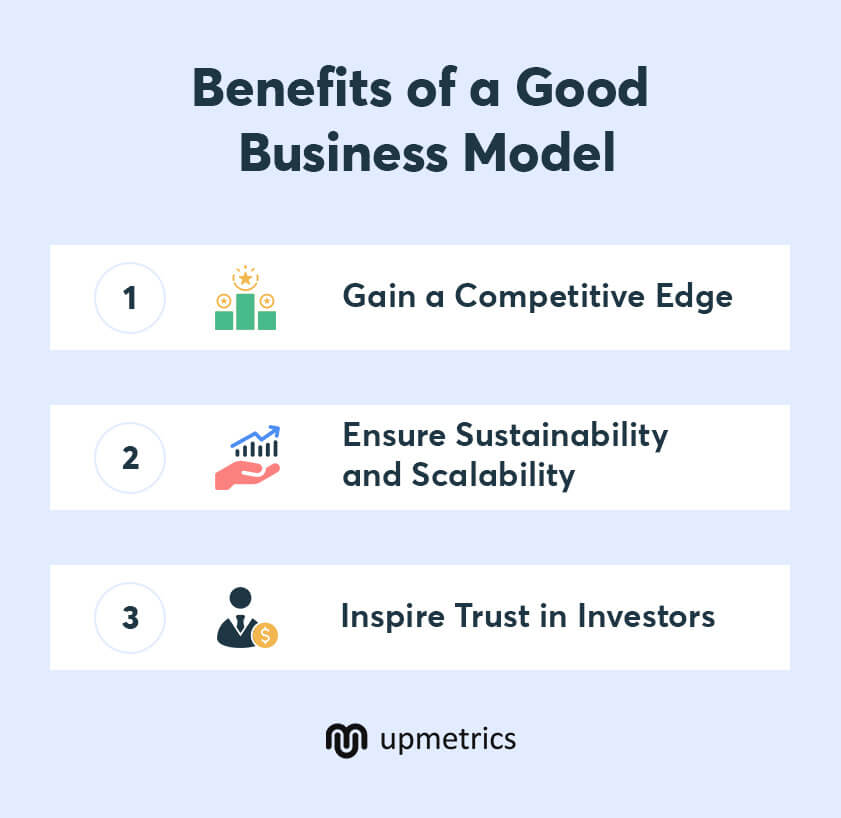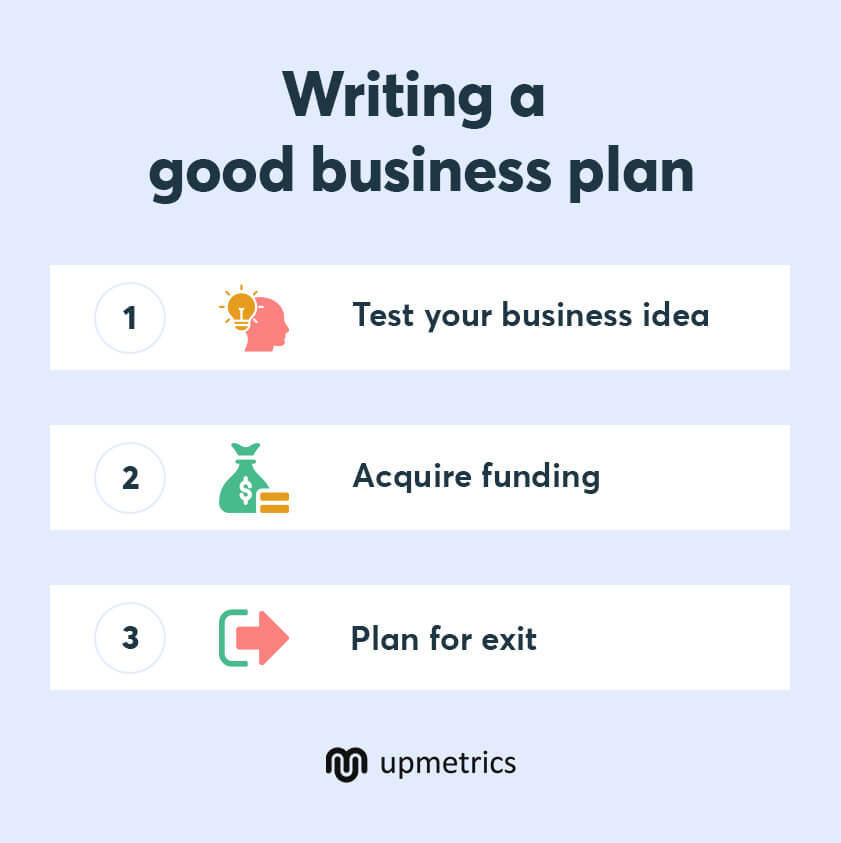Business plan, business model, strategies, financial forecasts, and whatnot!
Starting a business means encountering new terms every day, but not exactly knowing when to use what!
Two such terms are business plan and business model. People often use them interchangeably, and it’s okay if you do too. Today we’ll change that so you know which to use when.
In this article, we’ll conduct a thorough business plan vs. business model comparison to understand their meanings and know their purpose.
So, let’s kick-start this journey now.
Key Takeaways
- A business model outlines how a company creates, delivers, and captures value, focusing on the operational aspects.
- A business plan is a comprehensive document detailing the company’s objectives, strategies, market analysis, financial projections, and operational plans.
- While the business model is a component of the business plan, the latter provides a broader roadmap for your business’s success.
What is a business model?
A business model is a mechanism that directs how you create, deliver, and attain value in the market; it’s the profit-generating plan of your company.
This involves identifying your value proposition, targeting specific customer segments, defining revenue streams, leveraging key resources, and forming strategic partnerships.
Simply put, it’s how you sell your product to make money.
Components of a business model
The essential elements of a business model are:
- Customer segments
- Value proposition
- Revenue streams
- Channels
- Customer relationships
- Key activities
- Key resources
- Key partners
- Cost structure
What is a business plan?
A business plan is a comprehensive document that outlines your entire business operations. It covers everything from launching products and setting milestones to planning an exit strategy, detailing every step of your business journey. A business plan describes what a company does, its vision & goals, and its strategies.
Essentially, a business plan serves as a roadmap for how your business will operate, grow, and achieve success.
Components of a business plan
Here are the core components of a business plan:
- Executive summary
- Company description
- Products and services
- Market analysis
- Customers analysis
- Competitors analysis
- Marketing and sales plan
- Operations plan
- Financial plan
- Appendix
Say goodbye to boring templates
Build your business plan faster and easier with AI
Plans starting from $14/month

Four key differences: business model vs. business plan
Now that you know the exact meaning of a business model and business plan, it’s time to understand the difference.
1. Focus
Your business model focuses on optimizing the internal and external company operations to earn maximum profits. It explains your relationship with dealers, distributors, service partners, customers, and target audience.
Conversely, your business plan focuses on how you set business goals, create strategies, make predictions, and manage labor to sustain and scale your business. It also outlines your relationship with your customers, competitors, industry, and the market.
2. Benefits
Adopting the right business model(s) help you:

Gain a competitive edge
Incorporating a unique business model amazes your audience and attracts them to be your first-time customers. It also provides you with a competitive edge over other businesses in your industry.
Ensure sustainability and scalability
A business model pushes an entrepreneur to have monthly update meetings and plan what the next month should exactly look like. Many businesses shut down due to poor financial management, which is why a business model is required.
From economic storms to unexpected difficulties, a business model ensures both sustainability and scalability.
Inspires trust in investors
Investors know the failure rate of small businesses, which is why incorporating a clear business model provides a sense of security. They will also know that you have a strategy and what your profitability expectations are for the upcoming years.
Writing a good business plan helps you:

Test the viability of your business idea
A business plan defines the target customers and their willingness to pay for your product or service. This way, your business idea will be validated, helping you decide whether to move forward with it or not.
Acquire funding
If you want funds from banks, investors, or other parties, then you’ll require proper financial details like goals, plans, and projections. A good business plan will help you impress investors.
Plan for exit
A business plan includes strategies and a timeline to accomplish any task, which helps in planning your business’s exit too. While handing over your business or closing it directly, meeting the financial goals is also important—which are very specific in the business plan.
Other advantages of writing an ideal business plan include:
- Identifying market gaps and threats
- Organizing and planning business processes
- Forecasting financial estimates and market trends
- Creating strategies to achieve objectives
3. Process
While adopting a business model
First, consider the scalability of your business, then measure the value you offer. List down your competitors, segment your customers, see the market potential, and then choose a business model.
Here are other points to consider:
- Aim to receive validation from prospective customers
- Modify assumptions to match customer preferences
- Focus on the current financial position
While creating a business plan
Answer a few questions first, like where you think your business will be in 10–15 years, what’s your expected income, or what are your projections.
- Aim to find factual information through research
- Support assumptions through data from customer analysis
- Focus on the current and future financial position
4. Types
Business models
A business model outlines how a company creates, delivers, and captures value. Understanding different types of business models can help identify the best approach for their businesses, ensuring growth. Some of the types of business models are:
- Subscription model
- Freemium model
- E-commerce model
- Advertising model
- Franchise model
Business plans
Each type of business plan serves a unique role, whether it’s for a startup looking to enter the market, an existing business planning for growth, or a company looking to improve its operational efficiency. Here is an overview of the most common types of business plans:
- Startup business plan
- Lean business plan
- Traditional business plan
- Internal business plan
The bottom line
There’s no standard answer for business plan vs. business model; the choice entirely depends on your business’s specific needs and objectives.
Additionally, planning is an ongoing process. You can’t create a business plan or a business model and rely on that for years to come!
So, to keep your business model and business plan updated, explore a business plan app like Upmetrics. It has a business model canvas template, sample business plans, and an AI assistant to help you plan as many times as you need.

